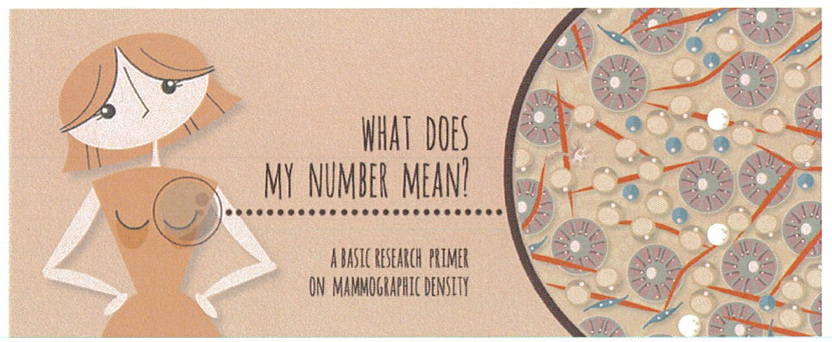
Several states, most recently California, have passed laws requiring health providers to tell a women in writing if her mammogram reveals she has dense breasts. The letter is meant to explain that dense breasts make cancers harder to detect and that breast density is associated with a higher risk of breast cancer. The passing of this legislation and its adoption into practice has raised questions and concerns about what breast density is and why it matters.
Despite being one of the strongest risk factors for breast cancer, breast density is not well understood. This toolkit attempts to answer many unanswered questions about breast density such as:
- How does breast biology influence breast density?
- What types of cells create dense breasts?
- Why does breast density matter?
- What does your score mean?
- What kind of research is being done regarding breast density?
- And, most importantly, why does breast density increase breast cancer risk?
The toolkit includes a 15 minute video, a comic book in English and en Español, a glossary, and an evaluation form.
The 15-minute video is a visual science-based storyline, narrated by KGO ABC7 Bay Area’s veteran news anchor Cheryl Jennings, which uses time lapse imaging and animation to highlight methods of and theories from biology and physics about breast density and its relationship to cancer risk. Scholarly, yet direct, comprehensible and accessible, it offers clarification and a fresh way of thinking about a complex and controversial topic. It is meant to serve as an educational tool for health care providers and professionals as well as breast cancer advocates and organizations to explain one of the theories regarding the biology behind breast density and its relationship to breast cancer risk.
This animated feature was developed as part of the Breast Cancer and the Environment Research Program, a program funded by the National Cancer Institute and the National Institute for Environmental Health Sciences, which studies environmental causes of breast cancer by focusing on mammary gland development during specific windows of susceptibility (prenatal, puberty, pregnancy, menopause), times when the breast may be particularly vulnerable to environmental influences. Additional funding was provided by the National Cancer Institute’s Physical Sciences in Oncology (PS-OC) Program and Zero Breast Cancer.
For questions or comments about the Toolkit please contact:
Catherine Thomson, MPH
Zero Breast Cancer
415-507-1949 X102
[email protected]


